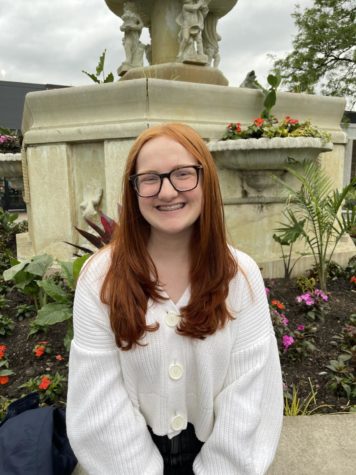We need to teach Evanston history
August 23, 2020
Each year, many ETHS students learn about either US or World History. These classes teach important lessons about how the US and other nations were shaped into the countries they are today. History gives students many valuable lessons, and yet, there is still one type of history many know little about: Evanston history. Even though Evanston is where most of us call home, we lack knowledge about it. Teaching Evanston history can provide students with necessary knowledge and perspective, yet it still remains, mostly, a mystery.
While ETHS does provide some avenues for local history education, it is not required. Some students will learn about these important local events in their freshman, sophomore, or junior years, while others still remain in the dark.
By teaching students about Evanston history, teachers and administrators are providing students a more well-rounded education. Students will not only know about the world and country they reside in, but also the place they call home. Not many students know when Evanston was founded, who founded it, or how it came to be the city it is today. Yet, students know that the US was founded on July 4, 1776, can name at least some of the founding fathers, and some can give a brief synopsis of US history. And while knowing about your country is vital in historical knowledge, knowing your home is just as important. By giving students that Evanston-centric historical knowledge, it will allow them to stretch their minds and give them a more well-rounded historical education.
“I believe that local history is important to teach—for two reasons. First, it connects to students’ lives directly. Teaching about local history can help students understand the community they currently live in and how it came to be the way that it is,” says History department chair Nicole Parker. “Teaching local history can also help students understand how their communities connect to other narratives, like the history of Illinois, the United States, and the world. There are far too many examples of how our local history intersects with other narratives, and when we help our students discover that, it is more engaging.”
As a matter of fact, all students should learn more about their own local history because it will allow for teachers to be able to enrich the minds of students and put history in a new perspective.
“It is important for all of us to learn about our own communities historically and then apply and expand or contrast it to the state and then national level,” says the Director of Archives and Administration at the Evanston History Center, Grace Lehner. “I certainly feel that history, as a concept and as study, would feel more immediate and would resonate with students in a meaningful way if students were encouraged [or] taught to look at local history closely, as opposed to studying the broader sweep of American history.”
Learning about the history of Evanston can also help students become more socially aware of their city, given the historical significance of it. An example of this is seen through segregation. As the black population grew in Evanston, segregation was enforced, with clearly segregated neighborhoods appearing in the 1920s through redlining. Schools were not desegregated until 1967, and the effects of redlining can still be seen, according to Evanston History Center.
Even though many deem Evanston to be a diverse haven, it is important to acknowledge that statement was not and still is not necessarily the case. This knowledge is unknown to many Evanstonians; however, teaching Evanston history would greatly impact the way many view their city and could be an important step in acknowledging the harmful actions of the past.
In order to accomplish this, teachers can simply take a day or two to talk about Evanston history. While there is a plethora of information out there, the key events that shaped Evanston or information to provide students with greater perspective are what is necessary. It is not the most time consuming lesson, yet it can provide so much good.
Teachers could also bring in people to talk about their experiences with Evanston history. It can even further localize the history and have students see a connection to what they are learning.
“One of the most important steps we can take to enhance the study of history is to ask older people about their experiences. Oral histories are an invaluable resource and one that needs to be implemented further in history curriculums. Asking questions of those that have survived events and times in the past is the most immediate and primary source of history available,” says Lehner.
Overall, if teachers were to take a day or two in history classes to either bring someone to talk about their experiences with Evanston history or simply teach about major local events, students would have a refreshed perspective on history. Too much important knowledge has been overlooked simply because it is local. Evanston history is just as important and necessary to learn as US or world history. Evanston history has so many aspects that have been left untouched, but with a few days of instruction, teachers can provide students with knowledge that can last a lifetime.








